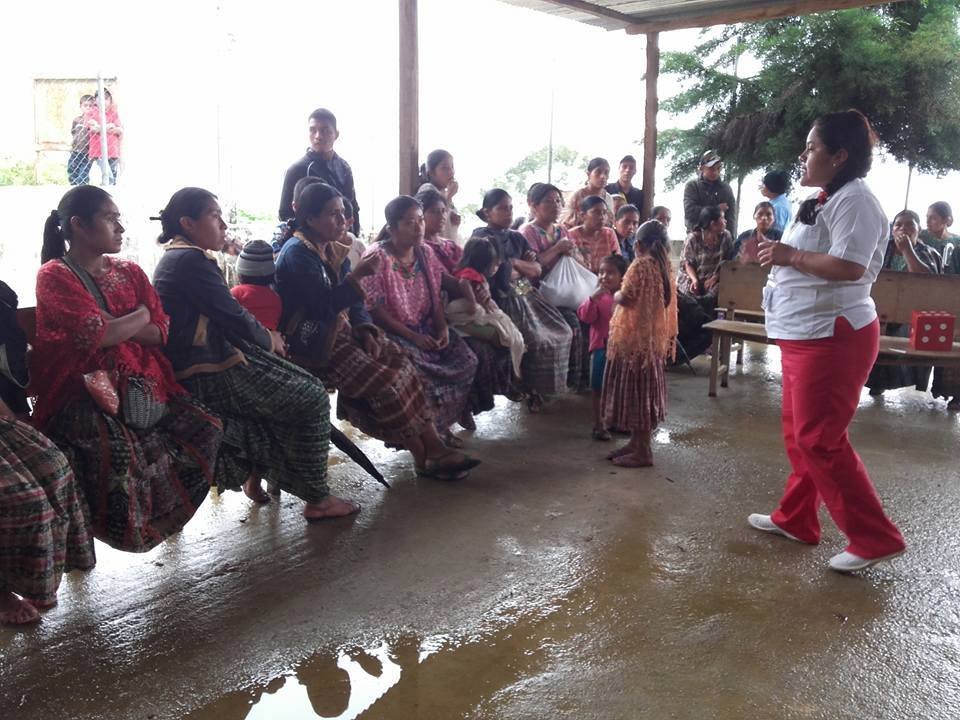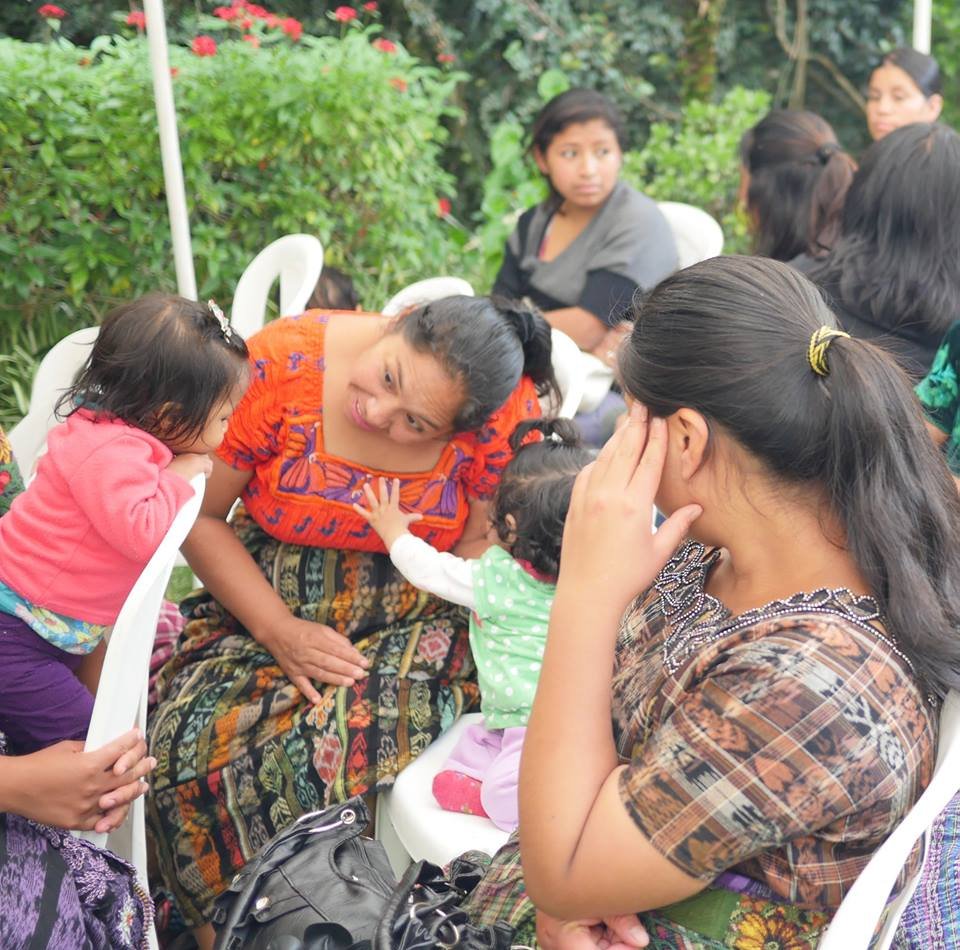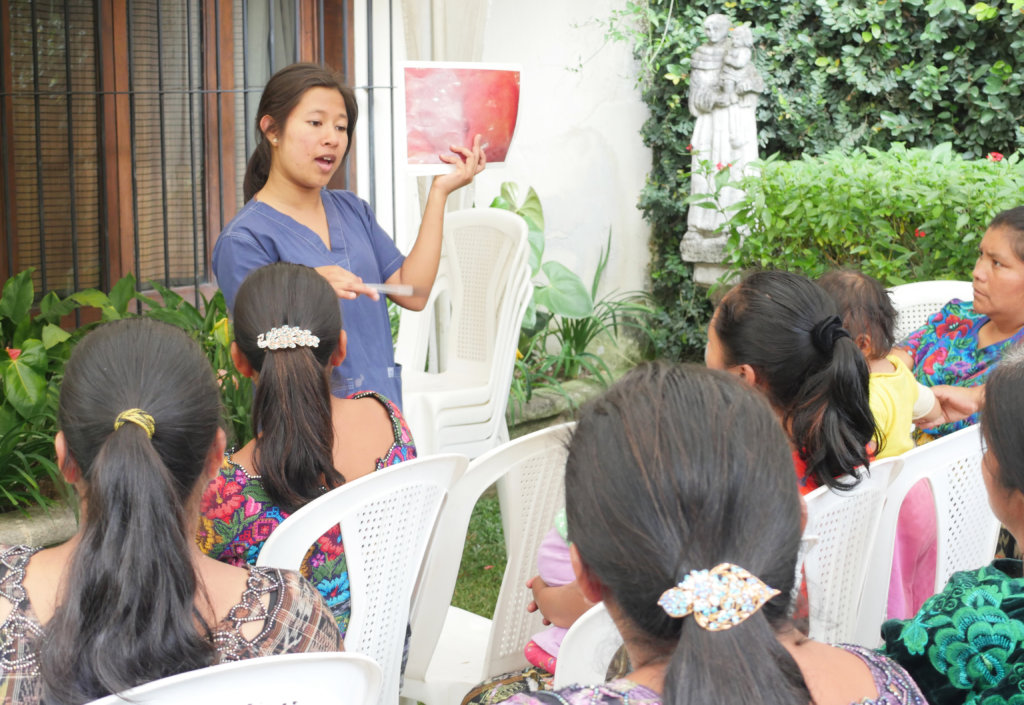By Shilpa Kothari | Program Director
2016 marks the 10 year anniversay of WINGS' development and implementation of a cervical cancer program using the screen and treat visual inspection with acetic acid and cryotherapy method (VIA-cryo). Prior to 2006, WINGS provided nearly 5,000 referrals a year to a national partner organization for pap smears. As high as the need was and remains for these services, what we realized early on is that in a low-resource setting like Guatemala, the traditional pap smear was not the best or most practical option for women from rural, indigenous, and low-income villages. Why not? Because first and foremost, there were and still are so few adequate facilities and competently trained lab technicians to read pap results. Second, unlike in the United States, there is quite a bit of lag time in preparing the results to share with each woman. And finally, because the results are ready up to a month after the initial pap, it was often difficult to communicate with each woman in question to provide her with a positive or negative result: many did not have cell phones, clear addresses, or even live near the facility in which they underwent the pap smear.
VIA-cryo is a wonderful alternative because it can be performed outside of a clinical facility, including in many of the remote jungle and mountain settings we work in, and provides immediate results. Same-day treatment is provided for pre-cancerous lesions while more advanced cases, including women suspected to have cancer, are referred to a partner gynecologist for further examination (biopsies, colposcopies) and treatment. Moreover, international guidelines recommend that women who have a normal result do not need to return for an examination for 3 years.
We provide VIA-cryo through two service components: daily mobile clinics in communities and stationary clinics in peri-urban areas. The ease and availability of this service means nearly 4,000 women visit our clinics on an annual basis for cervical cancer screenings. As pleased as we are to see women arriving daily at our clinics for screening, we know one major issue remains in our path to making preventative cervical cancer screenings a norm in Guatemala: a fatalistic view of cancer, and cervical cancer specifically, among many Guatemalan women. Fatalism tends to be more damaging after a woman has undergone screening and does in fact have a positive result or suspected case of cancer. In many communities, people believe that they do not have control over their future - that cancer is part of their destiny. Take 28 year old Carmena who we met in our mobile clinic in Zacualpa, Quiché. The mother of one had been struggling to conceive as she and her partner are ready for their second child, so she thought it best to undergo a screening and see if our team could detect anything. Unfortunately, we did.
The young mother has what our team refers to as a "suspected case of cancer" and was given emotional counselling by our team and immediately referred to a more advanced medical facility in her area so that the appropriate course of treatment could be determined. Carmena has been hesistant to actually visit the medical facility because she thinks it's her fate. This is an indication for our team that so much more needs to be done in addition to making services accessible: Guatemalan women need to know and understand that they can have a say in their health, their lives, and their futures, and in this case, following through with a screening or treatment is the first hurdle.
Both our medical team and our Reproductive Health Educators are working with Carmena to help her move beyond the idea that cancer is her fate so that she can go forward with a treatment plan and be there with her daughter. Learning from Carmena and other similar cases, our team is all the more dedicated to ensuring that women in Guatemala understand they have a right to health which does not stop at a positive diagnosis.
Thank you for standing with WINGS and bringing vital cervical cancer education and screening to vulnerable women in Guatemala.
By Sally Parmelee | Development Coordinator
By Sally Parmelee | Development Coordinator
Project reports on GlobalGiving are posted directly to globalgiving.org by Project Leaders as they are completed, generally every 3-4 months. To protect the integrity of these documents, GlobalGiving does not alter them; therefore you may find some language or formatting issues.
If you donate to this project or have donated to this project, you can receive an email when this project posts a report. You can also subscribe for reports without donating.
Support this important cause by creating a personalized fundraising page.
Start a Fundraiser

